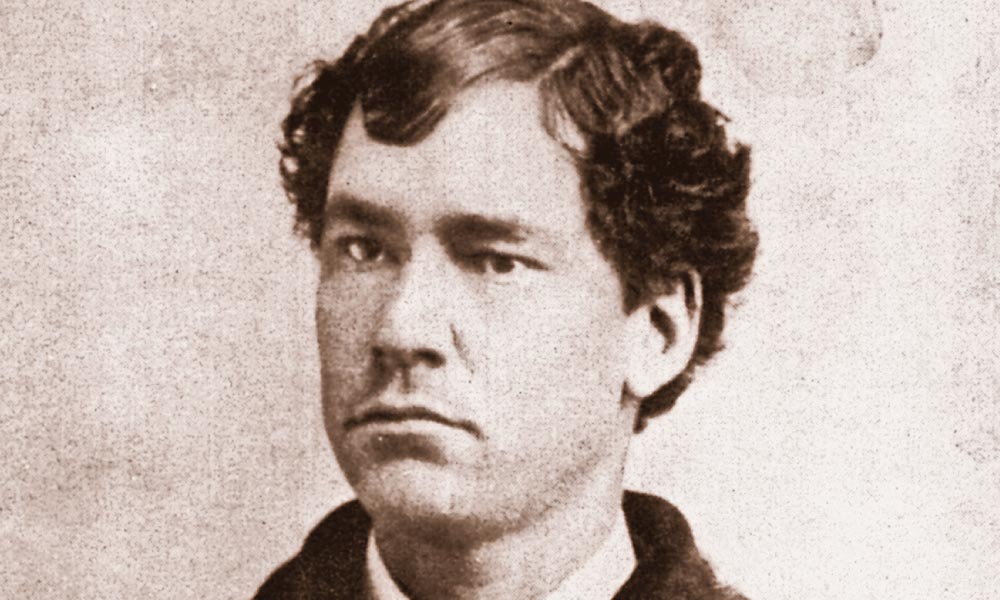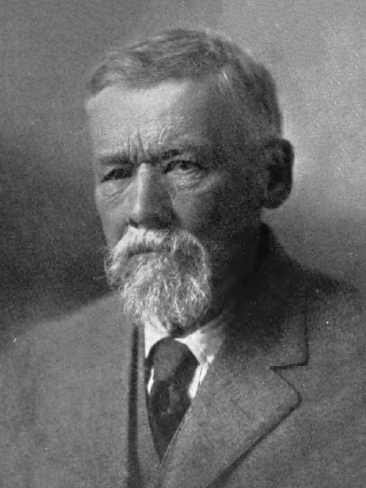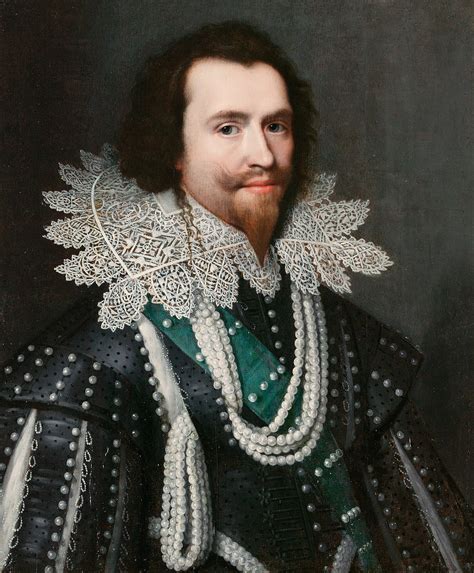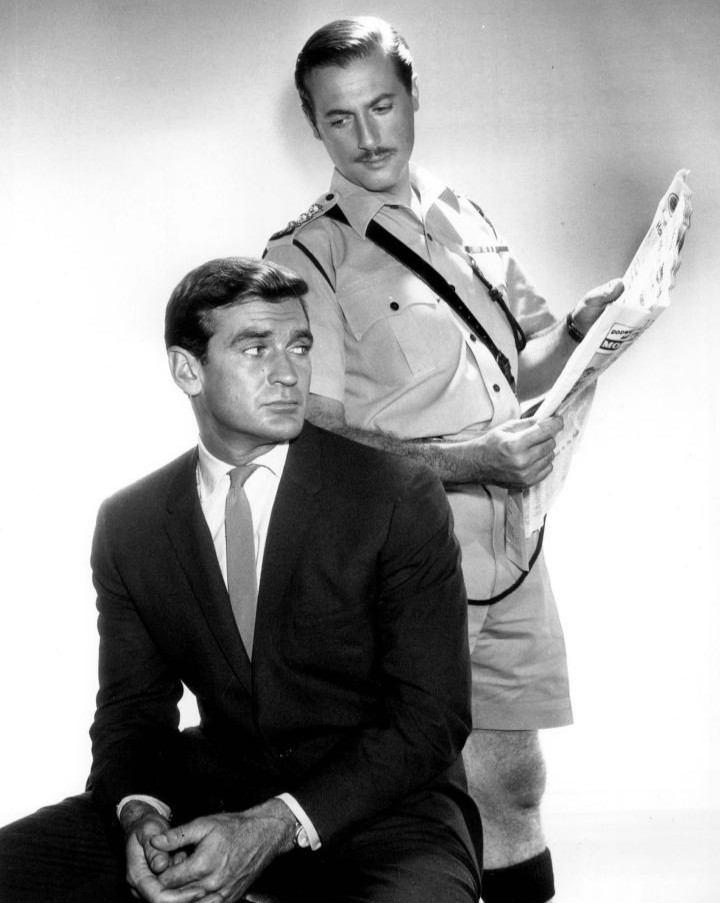John Churchill was perhaps the greatest military genius who ever fought for England, and certainly the best general since Cromwell's day. Far superior to William III as a general, he was fully his equal in keeping together ill-assorted and jealous allies. In a day of generally static methods of warfare, with siegecraft predominating, Marlborough injected a boldness and originality into strategy, and on the battlefield his keen mind and quick eye seemed always to pick out the best tactical movements. It was not only as a strategist and battle tactician that he excelled. If genius is "the capacity for taking infinite pains," he qualified for that highest distinction. No small part of his success came from his meticulous foresight for every detail: his soldiers always had food, clothing, shelter, and pay, and came to the battlefield in the pink of condition.
(from A History of England and the British Empire)
Random thoughts from a largely-useless man. Old radio shows, old movies, the simple life.
Thursday, May 31, 2018
Wednesday, May 30, 2018
Close votes in Parliament
It was nip and tuck [between the Tories and the Whigs] during this reign and the next one. No one could foresee with surety how an election would result, nor was there even any certainty as to the outcome of a vote in the closely balanced House of Commons. The absence of a few Whigs or Tories for a cockfight or a party might be enough to change the vote.
(from A History of England and the British Empire)
(from A History of England and the British Empire)
Tuesday, May 29, 2018
Elfego Baca
Walt Disney produced a mini-series for television about Elfego Baca, who was a real-life figure - a lawman and politician. There is one remarkable episode depicted in the TV program that evidently was true, although almost unbelievable. Between 40 and 80 gunmen shot it out with Baca, alone in an adobe hut, firing somewhere close to 4000 shots, and yet he emerged unhurt. The door was introduced as evidence in Baca's trial (he was acquitted) with more then 400 bullet holes in it. Although not exemplary in much of his life, Baca's courage was without question.


Monday, May 28, 2018
Designations on the political spectrum
Then [1661] and ever since, men have tended to fall into four different general attitudes toward political policy: reactionary, conservative, liberal, radical. It is well to distinguish carefully among those terms; for they keep recurring and are often misapplied. The reactionary is one who wishes to go back to former conditions; the conservative, usually well contented with things as they exist, is psychologically or economically opposed to any considerable change; the liberal has a broadminded attitude, ready to preserve whatever seems to him good in the old, but equally ready to make changes which seem to him improvements; while the radical, as the Latin derivation indicates, desires to get at the roots and start anew.
(from A History of England and the British Empire)
(from A History of England and the British Empire)
Sunday, May 27, 2018
Shared rulers: a very strange situation, at least to us today
In the grave crisis of invasion Amsterdam brought to the head of government a slender, taciturn young man of twenty-two, the third William of Orange to govern Holland. Sixteen years later he was also to be the third William to rule England.
(from A History of England and the British Empire)
(from A History of England and the British Empire)
Saturday, May 26, 2018
Understandable stage name
Lisa Montell was an actress from the 1950s and 1960s, who usually played Latino or Mediterranean roles because of her dark complexion. Her birth name was Irena Ludmilla Vladimirovna Augustinovich, so it is easy to see why she adopted a stage name.
Friday, May 25, 2018
The lot of the Royal Navy in the 1660s
Rotten ships and ill-fed, unpaid crews too often hampered the efficiency of naval operations. The later remarkable breed of professional navy officers had not yet developed. Some were courtier captains, who could barely keep their feet planted on deck in a moderate sea; others were crude, unlettered, but effective "tarpaulins," who had risen from the forecastle. As Macaulay remarked, "There were gentlemen and there were seamen in the navy of Charles the Second. But the seamen were not gentlemen; and the gentlemen were not seamen."
(from A History of England and the British Empire)
(from A History of England and the British Empire)
Thursday, May 24, 2018
A rough couple of years in London
Shortly after Charles came to the throne, London encountered two calamities in rapid succession: the Plague in 1665 and the Great Fire in 1666. The Plague was the last violent outbreak of the same scourge which had cropped out from time to time since the Black Death three centuries earlier. This time its effects were limited pretty much to London, where at least seventy thousand are estimated to have died in a few months The sturdy Pepys was among the few who stayed at his work while other fled - "little noise heard night or day," he wrote, "but the tolling of bells." . . .
The following year (1666) London was struck again, this time by a fire which raged five days and cleared out a considerable part of the City. It spared the slums to the eastward, not did it extend far toward Westminster; but in the City proper it destroyed some thirteen thousand homes and eighty-nine churches
(from A History of England and the British Empire)
The following year (1666) London was struck again, this time by a fire which raged five days and cleared out a considerable part of the City. It spared the slums to the eastward, not did it extend far toward Westminster; but in the City proper it destroyed some thirteen thousand homes and eighty-nine churches
(from A History of England and the British Empire)
Wednesday, May 23, 2018
Texas John Slaughter
John Horton Slaughter was a real-life character who was depicted in a television mini-series by Walt Disney. The program is interesting and very watchable, especially if we keep in mind that the person being depicted actually did exist. Slaughter was a notable lawman and was involved in a couple of high-profile arrests involving Geronimo and the Jack Taylor Gang.


Tuesday, May 22, 2018
A dubious recommendation
In [Paradise Lost] are to be found the best qualities of Puritanism: constant courage, if not mercy; quiet confidence, if not humor; unshaken will, even if gloomy; and a spiritual exaltation, mysterious, overwhelming, which sometimes approaches the sublime.
(from A History of England and the British Empire)
(from A History of England and the British Empire)
Monday, May 21, 2018
The paradox that was Cromwell
Tragically enough, Cromwell's way ended for the time being the very constitutional ideas of government for which he had fought. The force of circumstances, combined with his own personal idiosyncrasies, fashioned out of this conscientious opponent of tyranny one of the most absolute rulers England has ever endured.
(from A History of England and the British Empire)
(from A History of England and the British Empire)
Sunday, May 20, 2018
Date With the Angels
This was a situation comedy that aired on television in the 1957-58 season. It is funny and enjoyable, but not the stuff that legends are made of. A young Betty White was the star, with Bill Williams as her husband. Nancy Kulp (Miss Hathaway on The Beverly HIllbillies) was one of the frequent faces on the show. It is available on YouTube and is worth watching.


Saturday, May 19, 2018
Handy fundraiser
One of the most ingenious revivals of ancient laws was the so-called "distraint of knighthood." According to an unrepealed statute of Edward, all landholders with a stipulated income were required to become knights. In the days of Edward the law had been designed to provide a properly equipped force of armed horsemen. Now, when 40-pound incomes had become far more common, it was used to mulct a very large group. Men had to pay a heavy fee if they became knights, and they were fined if they refused.
(from A History of England and the British Empire)
(from A History of England and the British Empire)
Friday, May 18, 2018
Thirteen colonies - who cares?
The West Indian Islands attracted even more settlers than all the mainland colonies together. An unsuccessful expedition to colonize Guiana settled on one of the islands, and before long Englishmen were swarming in great numbers to the Caribbean, the little island of Barbados, only twenty-one miles long and less than fifteen miles wide, having more settlers than all New England.
(from A History of England and the British Empire)
(from A History of England and the British Empire)
Thursday, May 17, 2018
A pretty fair profit margin
The profits of the East India Company showed a marked jump in the latter half of the century, when annual dividends sometimes reached 20 and even 50 per cent, though the English company could not match the dividend record of its Dutch rival, which averaged 18 per cent for two centuries.
(from A History of England and the British Empire)
(from A History of England and the British Empire)
Wednesday, May 16, 2018
Just take an X-ray
If you want to know what a wet noodle looks like, just take an X-ray of the spine of most of the Republicans in Washington today.
Just look Italian
You did not actually have to be Italian: you just had to look Italian, and you could make a lot of money in Hollywood back in the Golden Age playing gangsters and other bit parts. Swarthy skin and a heavy beard was about all it took.
Tuesday, May 15, 2018
Free people are skeptical people
With the precedent of Magna Carta in mind, they drew up a "Petition of right," which hit directly at the four main grievances - arbitrary taxation, arbitrary imprisonment, billeting, and martial law; for Parliament refused to be satisfied with a general promise of good behavior upon the part of the king.
(from A History of England and the British Empire)
NEVER trust your rulers, no matter how much you may be agreed with them politically. ALWAYS assume that they will abuse their power. A skeptical people is a free people.
(from A History of England and the British Empire)
NEVER trust your rulers, no matter how much you may be agreed with them politically. ALWAYS assume that they will abuse their power. A skeptical people is a free people.
Monday, May 14, 2018
Lord Buckingham's failure as a military stragetist
Expeditions were dispatched to Spain, to France, and to Germany - six expeditions in four years, and every one a miserable failure! Years of unpreparedness and neglect told their story. It always has taken England a considerable time to recover from the military stagnation of a long peace; for the Englishman engaged in civilian pursuits is quite unwarlike. There was no rush to arms; press gangs had to recruit by forced draft. Few communities allowed their better men to be rushed from their homes to what, in a time of unpreparedness, meant probable death by starvation or disease, if not on the battlefield. The army was composed of riffraff; the navy had been allowed to decay.
(From A History of England and the British Empire. This describes Britain in the early years of Charles I (1624-1628) when the country was under the control of George Villiers, Duke of Buckingham.)
(From A History of England and the British Empire. This describes Britain in the early years of Charles I (1624-1628) when the country was under the control of George Villiers, Duke of Buckingham.)
Sunday, May 13, 2018
Martin Kosleck: hitting back at the Nazis
If you are familiar with movies of the World War II period, then the face of Martin Kosleck is a familiar one to you. He spoke out against Hitler and the Nazis, and decided to leave Germany in 1931. He was subsequently placed on the Gestapo list of "undesirables."
Kosleck appeared in a number of films during that period, frequently portraying Nazis in a particularly uncomplimentary way. Many Germans resented being asked to play Nazis, but Kosleck viewed it as a chance to strike back against them in a small way. He played Joseph Goebbels five times.

Kosleck appeared in a number of films during that period, frequently portraying Nazis in a particularly uncomplimentary way. Many Germans resented being asked to play Nazis, but Kosleck viewed it as a chance to strike back against them in a small way. He played Joseph Goebbels five times.

Saturday, May 12, 2018
How many does this describe?
"Exceedingly charming, but one who did not leaven his ambitious ideas with common sense." This is a description of George Villiers, Duke of Buckingham in A History of England and the British Empire. I wonder how many young men throughout history that expression might have described.

Friday, May 11, 2018
King James vs. the House of Commons
The king told the Commons that they "derived all matters of privilege from him and by his grant." They replied that their "privileges and liberties are of right and due inheritance no less than our very lands and goods," and that "they cannot be withheld from us, denied, or impaired, but with apparent wrong to the whole state of the realm."
(from A History of England and the British Empire)
(from A History of England and the British Empire)
Thursday, May 10, 2018
Victor Sen Yung - a remarkable life
Victor Sen Yung made his name on the screen by playing Jimmy Chan, the son of detective Charlie Chan, in that series of movies, and also cook Hop Sing on the long-running television series Bonanza. So, his is a very familiar face to my generation.
What most of his fans probably do not know, however, are the facts that made his life fairly unique in Hollywood. He was born to Chinese immigrants. His mother died when he was about four years old in the influenza epidemic that decimated the population during the World War I years. His father traveled to China to remarry, then returned with his wife to re-establish the household.
Yung majored in animal husbandry at the University of California. He joined the Army Air Force during World War II and was involved in the production of several training films.
His role as Hop Sing was no fluke, for he was a very accomplished chef, and appeared in several cooking shows on television. He also authored The Great Wok Cookbook in 1974.
The circumstances of Yung's death were unusual. He ran a small mail-order Chinese pottery business in his home, and used an oven to cure the items. He died of a natural gas leak from the oven, and he had been dead at least ten days before his body was found. Actor Pernell Robert, who portrayed Adam on the Gunsmoke program, delivered the eulogy and paid for his funeral expenses.


What most of his fans probably do not know, however, are the facts that made his life fairly unique in Hollywood. He was born to Chinese immigrants. His mother died when he was about four years old in the influenza epidemic that decimated the population during the World War I years. His father traveled to China to remarry, then returned with his wife to re-establish the household.
Yung majored in animal husbandry at the University of California. He joined the Army Air Force during World War II and was involved in the production of several training films.
His role as Hop Sing was no fluke, for he was a very accomplished chef, and appeared in several cooking shows on television. He also authored The Great Wok Cookbook in 1974.
The circumstances of Yung's death were unusual. He ran a small mail-order Chinese pottery business in his home, and used an oven to cure the items. He died of a natural gas leak from the oven, and he had been dead at least ten days before his body was found. Actor Pernell Robert, who portrayed Adam on the Gunsmoke program, delivered the eulogy and paid for his funeral expenses.


Wednesday, May 09, 2018
Champion of the common law
The common law found a doughty champion in Sir Edward Coke, Chief Justice of Common Pleas and later of King's Bench. A thoroughly disagreeable person in public and private life, Coke was, nevertheless, remarkably well grounded in the origins of the common law, his one love in life; and he proved a tough fighter in its defense. His chief contention was that the law was superior to the king, whereas James aimed to make the judges agents of royal policy - "lions under the throne," as Francis bacon, then his attorney general expressed it.
(from A History of England and the British Empire)
(from A History of England and the British Empire)
Tuesday, May 08, 2018
The rise of representative government
The long-drawn-out conflict between parliament and the four Stuart kings, based on money and religious difficulties, was to transform England into the first modern constitutional monarchy, with the House of Commons, not the king, the real ruler. The disturbances brought about by this Parliamentary conflict were to give impetus to the planting on the Atlantic coast of North America of some of the sturdiest colonies any nation has ever owned. Ever since the Norman Conquest, England had been drawn into Continental problems and had developed, despite her insular peculiarities, on the same general pattern as the rest of western Europe. Now she was to turn in the opposite direction. In a period which has been called "the Age of Absolutism" in Continental history, a time when royal autocracy was reaching its height in the chief European countries, the English Parliament was to force the crown to submit to its domination.
(from A History of England and the British Empire)
(from A History of England and the British Empire)
Monday, May 07, 2018
Raleigh - not everyone's cup of tea
Adept at intrigue, [Sir Walter Raleigh] made a habit of criticizing his superiors to their superiors and rose rapidly. He soon won the favor of the queen, who from time to time presented him with lucrative monopolies, and sufficient estates in England and Ireland to make him the most extensive landholder in the country. Historians question the familiar story of the cloak and puddle, but it was perhaps typical or the tactics by which he became the chief favorite of Elizabeth in the middle period between Leicester and Essex. Few men of Elizabethan England were more thoroughly hated than Raleigh; he was considered an insolent upstart, untrustworthy and unscrupulous, and even those who admitted his keen ability often hated him the more for it.
(from A History of England and the British Empire)
(from A History of England and the British Empire)
Sunday, May 06, 2018
Hitting the Spanish where it hurt
After two years of reconnoitering the vulnerable spots of the Spanish Main, [Sir Francis Drake] sailed from Plymouth in 1572 on a voyage of reckless adventure with two little vessels and a crew of seventy-three, only one of which had passed the age of thirty. He struck at the Isthmus of Panama, where the treasures of Peru were brought overland. With his handful of men and some Indians who hated the Spaniards, he looted the town of Nombre de Dios, on the Atlantic side, and ambushed a rich treasure train, leaving fifteen tons of silver behind because the other loot was more valuable.
(from A History of England and the British Empire. If I am not mistaken this adventure is woven into at least a couple of the famous Errol Flynn swashbuckler movies.)
(from A History of England and the British Empire. If I am not mistaken this adventure is woven into at least a couple of the famous Errol Flynn swashbuckler movies.)
Saturday, May 05, 2018
Hong Kong television series
Hong Kong ran for only one season in 1960-61, but it was very well done. Rod Taylor was the star, playing a newspaper correspondent who for some reason is always getting into tight spots that somehow seem to involve a beautiful woman. His best friend is a police Chief Inspector, played by Lloyd Bochner. Many of the episodes are available on YouTube.

Friday, May 04, 2018
The difference between Elizabeth and Mary
Elizabeth's name is always associated with that of her younger and more attractive cousin and rival for the throne. Mary Stuart, the "Queen of Scots" who for years created complications for Elizabethan England. Queen of Scotland in her own name since babyhood, temporarily queen consort of France, and, as great-granddaughter of Henry VII, enjoying a title to the English throne almost as good as Elizabeth's, Mary was in a powerful position. Tall, with an exquisite pale skin and beautiful dark-brown eyes and hair, Mary had a feminine charm so irresistible that she is ranked as one of the most fascinating women of history. Passion and impulse, however, led her to throw away her many advantages and to be at times incredibly foolish. Her cold English cousin, with her masculine mind, sacrificed the woman to the queen; Mary sacrificed the queen to the woman every time. So it was that eventually Mary lost her life at Elizabeth's order.
(from A History of England and the British Empire)

(from A History of England and the British Empire)

Thursday, May 03, 2018
The Seahawks
Elizabeth also condoned, as we shall see, the raids of her seamen on the Spanish Main - a further example of how far a nation could go without actually declaring open war. Elizabethan England was full of men who were ready to fight papists or to chase galleons, with the clear understanding that if they should fail, Elizabeth and Cecil would disavow their acts to protesting ambassadors.
(From A History of England and the British Empire. The situation described here is what is depicted in the Errol Flynn movie The Seahawks.)

(From A History of England and the British Empire. The situation described here is what is depicted in the Errol Flynn movie The Seahawks.)
Wednesday, May 02, 2018
Michael Dunn - unusual detective
His was a familiar face on film and on television a couple of generations ago. Michael Dunn suffered from dwarfism and was only 3'11" tall. As he put it, he did not suffer from a lot of competition for his acting roles. According to the IMDB website, while he was waiting for his big acting break, one of the ways he supported himself was as a hotel detective, so he was not afraid to take on unusual occupations.


Tuesday, May 01, 2018
How state religions work
The Church of England was more than a matter of dogma and ritual. From one point of view it was a branch of the government. As an "established" church, its bishops were appointed and its policies were determined by the political authorities. Elizabeth herself, in order to spare the feelings of moderate Catholics, substituted, in enumerating her various titles, the expression "and so forth" where her father and brother had used "Supreme Head of the Church": but she retained full authority. Parliament even used its religious authority to decree that Wednesday, in addition to Friday, should be a meatless day, in order to encourage the fisheries.
(from A History of England and the British Empire)
(from A History of England and the British Empire)
Subscribe to:
Posts (Atom)